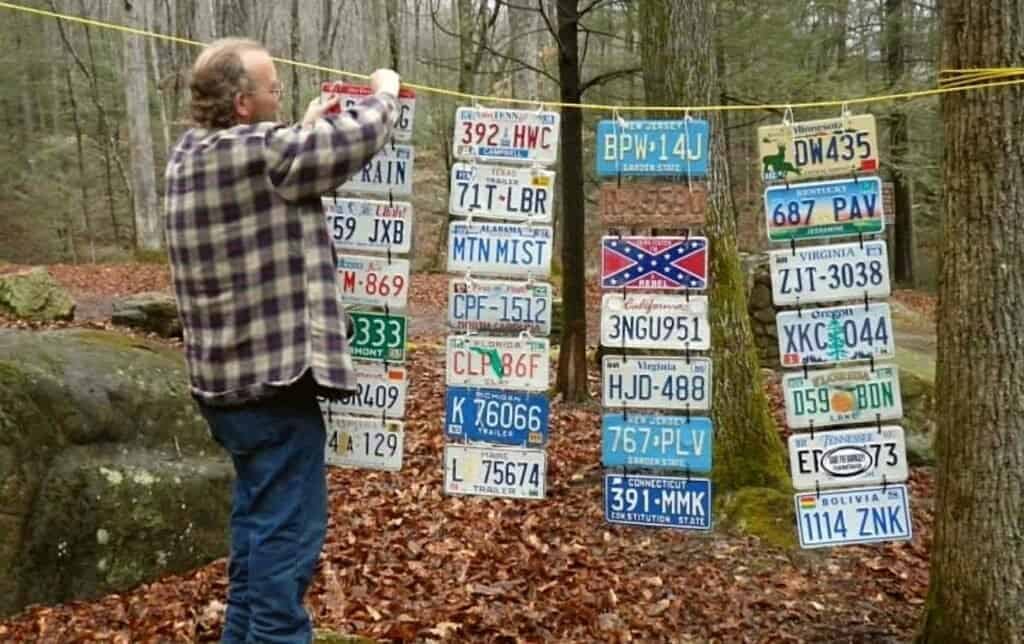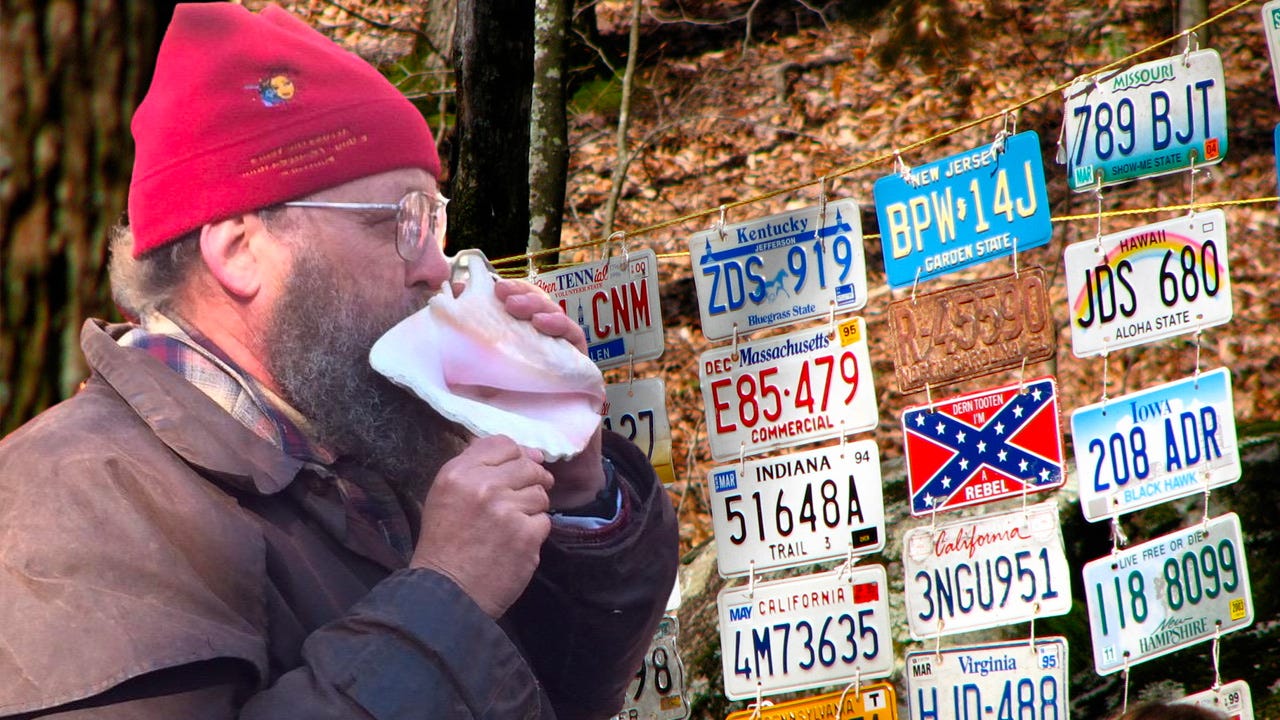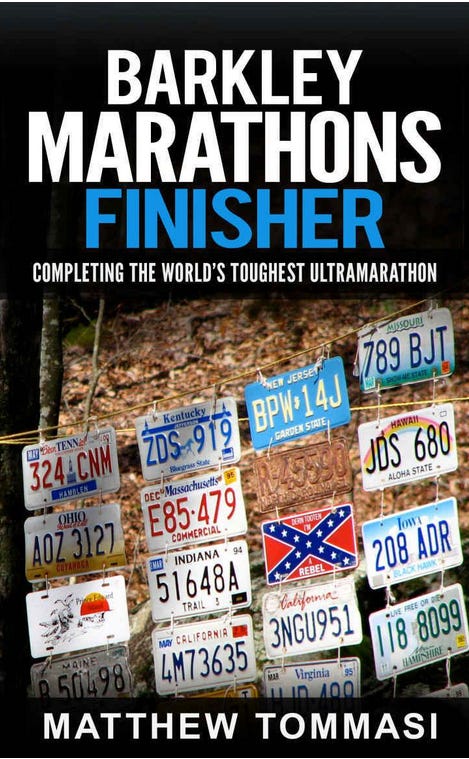I've Been Rendered a Footnote in the New York Times Tribute to Lazarus Lake
Who lives, who dies, who tells your story
On March 18, 2023 the New York Times published a profile of Lazarus Lake. The article was written by Jared Beasley, an ultramarathoner and professional journalist who has been published in running industry periodicals such as Runner’s World, Canadian Running, and Trail Runner. This is at least his third piece about Lazarus Lake. Even though Laz is very much still alive, he is slowing down because of age, so the New York Times piece reads as a tribute, a giving of flowers to a man facing mortality. I was mildly surprised that the incident where Laz deleted my finisher post from his Facebook community was included in the piece. I wasn’t surprised that:
Mr. Beasley didn’t reach out to me for comment even though he quoted extensively from Laz, and included accolades from another runner; and
Mr. Beasley failed to mention that a month after claiming that he had no issue with my finisher photo of me wearing a Black Lives Matter singlet, Laz removed my team from his virtual event because we refused to change our team name from “Black Lives Matter”.
In essence, Mr. Beasley has rendered me a footnote in the New York Times’ ode to Lazarus Lake- an inaccurate footnote at that. It’s one thing when niche publications like Runner’s World, Canadian Runner, and Trail Runner omit or downplay what Laz did, but now Laz’s incomplete and incomprehensible version of events has been memorialized forever in the New York Times, the paper of record.
That I’m not allowed to have any kind of voice in the publication of record about what happened to me is a reminder, perhaps a warning, of what happens when you challenge the gatekeepers of the status quo. They will banish from their spaces, their allies will smear you, and then they will repeat their whitewashed version of the events over and over again until they have perfected a version that strips you of everything deserving empathy and renders them both the victims and the heroes.
I have some sympathy for Mr. Beasley’s situation. He writes about running for a living, so his livelihood depends on continuing to 1) have access to the gatekeepers of running such as Lazarus Lake; and 2) write pieces that the white editors of Runner’s World, Canadian Running, Trail Runner, and the New York Times approve of. Notice how Mr. Beasley’s recounting of the creation of the Barkley Marathons omits that Laz was inspired to create Barkleys after watching news coverage of James Earl Ray’s futile prison escape attempt. Notice also that much of what Laz says is presented as fact, as opposed to qualified as “Laz claims” and “Laz recalls”.
To include my voice about what happened would jeopardize Mr. Beasley’s access to Laz, and make his target audience uncomfortable. So we have a white writer presenting a prominent white man to a white audience. The white writer gets published in the New York Times; the New York Times article gets clicks and shares; and the prominent white man grows his brand.
Everybody that’s supposed to benefit wins. My erasure wasn’t malicious- it was efficient. Truth, nuance, and fact-checking take up resources, and do not benefit anybody white.
Had Mr. Beasley reached out to me, this is what I would have shared:
On April 30, 2020 I signed up to participate in Lazarus Lake’s Great Virtual Race Across Tennessee (GVRAT). I had been following Laz’s events, the Barkley Marathons and Big’s Backyard Ultra, since 2014, when I started running after donating one of my kidneys. GVRAT began on May 1, 2020, and I completed the length of the event, 635 miles, on July 31, 2020. The next day I wrote my race recap and posted it to my personal Facebook page and GVRAT’s Facebook group. In my recap, I discussed listening to audiobooks while running, Robert Caro’s four volume biography of Lyndon Johnson, having a homophobic slur yelled at me on my penultimate day of running, and my Chinese neighbors racially profiling my wife, who is Black. My recap was accompanied by three photos- me wearing the Black Lives Matter singlet that I ran all of my July miles in, Robert Caro’s books, and a plaque dedicating a trail in Keene, New Hampshire to John Myrick Daniels. After posting my recap on the night of August 1st, I went to sleep.
The next morning, I was informed that overnight, GVRAT’s administrators had deleted my race recap from their group page. Laz told me, “I am in 1000% agreement, but this is not a political site.”
I wrote a post about how disappointed I was about my race recap being deleted and shared it on my personal Facebook page. After other GVRAT participants asked about why my race recap was labeled “political” and deleted, Laz offered an explanation to the GVRAT group on August 5th that he later deleted. He claimed that he had no problem with my Black Lives Matter singlet. What caused him to delete my recap was the torrent of racist comments posted by other members of the GVRAT community. Even though Laz characterized those comments “the most offensive, typical white supremacist” he acquiesced to the angry white supremacist mob’s demand that my race recap be removed. Laz allowed the racists to define what is and isn’t “political”. In bowing to the bigots, Laz seemed to ignore his own community rule against hate speech and bullying.
As much as I disagreed with Laz deleting my post rather than censuring the bigots, I was willing to give him the benefit of the doubt. Being admin to a group of approximately 13,000 participants is hard, and he did say that he had no issue with my singlet. Taking Laz at his word, I organized a team of ten runners for Laz’s next virtual event, the Circumpolar Race Around the World (CRAW). We chose the team name Black Lives Matter. I registered our team on August 3, 2020. Our team name, along with every other team name was publicly viewable from the day we signed up.
On August 30, 2020, less than 48 hours before CRAW kicked off, we received an ultimatum from Laz that we change our name or be removed from his event. This time, Laz wasn’t responding to the angry white supremacist mob, or even a single complaint. They didn’t need to chime in because they had succeeded in politicizing Laz and convincing him that the words “Black Lives Matter”, not their racist vitriol, is the problem.
My teammates and I offered to have a dialogue with Laz. He hasn’t taken up on our offer.
After a period of radio silence Laz removed us from his event.
Later, Laz claimed that choosing to name our team “Black Lives Matter” was akin to showing up to his event to start a fight. In the intervening years, Laz and other runners have crafted a version of the narrative where they were the victims of my finisher photo and the three fighting words, “Black Lives Matter”. They are also the heroes of their story, for drawing a line and banishing me and my teammates in order to protect all that is good and pure about their refuge. The running industry’s social media professionals, podcasters, and writers such as Mr. Beasley uncritically publish Laz’s lies thereby rendering them fact.
This is not a story about how Black Lives Matter attacked Laz and his community. This is about a community’s leaders rejecting opportunities to be allies. This is about a community’s refusal to acknowledge that Black Americans have been targeted, hunted down, killed, incarcerated, pathologized, disenfranchised, and systematically oppressed in every way white supremacists can dream of. Laz and his community have steadfastly refused to be allies, claiming that doing so would damage the sacred purity of their politics-free refuge. The words Black Lives Matter are not welcome at Laz’s events even though he accepted and displayed a Confederate flag license plate for several years at the Barkley Marathons- the event inspired by Dr. Martin Luther King, Jr.’s assassin. When asked about the Confederate flag license plate, Laz stated that he would “definitely think twice about it now.” Not exactly a firm rebuke of the hate symbol, but apparently enough to placate his fans.
I’m willing to give Laz the benefit of the doubt and believe him when he claims he isn’t racist. I don’t think Laz hates Black people, but I don’t think he’s going out of his comfort zone to take a stand against anti-Black racism. Labeling what amounts as the bare minimum in terms of allyship “political” isn’t something Laz invented, but something he inherited from growing up in Southern white supremacist culture. Because he is white, and the son of an aerospace engineer in Tennessee, Laz had access to medical care, educational opportunities, and jobs that Black people did not. Laz was the treasurer of Shelbyville, Tennessee, a city that has a Ku Klux Klan and white nationalist problem. While there are similarly situated Tennesseans who have rebuked white supremacy and embraced anti-racism, they do so at the risk of severing connections to friends, neighbors, and community institutions that continue to embrace the white supremacist status quo. Being an anti-racist ally can be incredibly lonely, and I suspect even more so in sparsely populated areas in Tennessee.
I believe Laz when he says that he isn’t a bigot, because I think he’s a coward. It’s ironic that the person who dreamed up the toughest ultramarathon in the world; who challenges runners to dig deep to find greatness in themselves; the great Lazarus Lake perhaps feels obligated to acquiesce to white supremacists; might not be able to find the courage in himself to rebuke bigotry; because he doesn’t want to risk losing his community. He doesn’t want to be alone.
Maybe. On the other hand, he could just be more racist than he’s willing to admit to himself.
My invitation for dialogue remains open, because for what it’s worth, I still believe he has time to find his courage.








Racism is not about what one says about their intentions, it is about one's actions. If ones actions uphold white supremacy, then one is an agent of white supremacy. Period. Full stop.